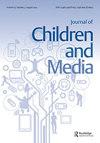Assessing the state of media literacy policy in U.S. K-12 schools
IF 2.1
3区 心理学
Q2 COMMUNICATION
引用次数: 2
Abstract
ABSTRACT Warning signs for the health of the American democracy abound. These challenges have multiple manifestations and multiple roots, but media and the Internet, more broadly, are implicated in prominent ways. Schools, the institutions charged with educating current and future generations, have a role to play in supporting the preparation of an informed citizenry. This study examines the extent to which state level legislation supports the provision of civically oriented media literacy education. To do so, we first identify several critically needed media literacy education dimensions and then examine how well existing legislation from all 50 states responds to these identified needs. Findings reveal that not only is there an overall dearth of K-12 media literacy policy, but definitions and corresponding resources remain sparse and varied. For schools to fulfill their role of providing young people with the knowledge, skills, and commitments to participate and promote a vibrant and informed democracy, this study concludes that more must be done to support media literacy education within state level policy. IMPACT SUMMARY Prior State of Knowledge: Studies indicate that few young people in the United States receive significant learning opportunities to develop and practice media literacy-related skills. While federal legislation is valuable to help set the tone for the nation, state support for local innovation has long been a key strategy for supporting school reform efforts. Novel Contributions: Accordingly, this study examines the extent to which state level legislation supports the provision of civically oriented media literacy education. Practical Implications: Findings reveal that media literacy policy remains the exception, rather than the norm, in states across country – which suggests the need for all state legislators to consider the importance of developing and passing policy that would provide the infrastructure their states need to support young people in learning media literacy skills on a routine basis in schools.评估美国K-12学校的媒体扫盲政策状况
美国民主健康的警告信号比比皆是。这些挑战有多种表现形式和根源,但更广泛地说,媒体和互联网以突出的方式受到牵连。学校是负责教育今世后代的机构,在支持培养知情公民方面可以发挥作用。本研究考察了州一级立法在多大程度上支持提供以公民为导向的媒体扫盲教育。为此,我们首先确定了几个急需的媒体素养教育层面,然后研究了所有50个州的现有立法对这些确定的需求的反应。调查结果表明,不仅K-12媒体扫盲政策总体上缺乏,而且定义和相应的资源仍然稀少多样。为了让学校发挥作用,为年轻人提供参与和促进充满活力和知情的民主的知识、技能和承诺,本研究得出结论,必须在州一级的政策范围内采取更多措施来支持媒体扫盲教育。影响总结先前的知识状况:研究表明,在美国,很少有年轻人获得重要的学习机会来发展和实践与媒体素养相关的技能。虽然联邦立法有助于为国家定下基调,但州对地方创新的支持长期以来一直是支持学校改革努力的关键战略。新颖贡献:因此,本研究考察了州一级立法在多大程度上支持提供以公民为导向的媒体素养教育。实际意义:研究结果表明,媒体扫盲政策在全国各州仍然是例外,而不是常态——这表明所有州立法者都需要考虑制定和通过政策的重要性,这些政策将为各州提供所需的基础设施,以支持年轻人在学校日常学习媒体扫盲技能。
本文章由计算机程序翻译,如有差异,请以英文原文为准。
求助全文
约1分钟内获得全文
求助全文

 求助内容:
求助内容: 应助结果提醒方式:
应助结果提醒方式:


